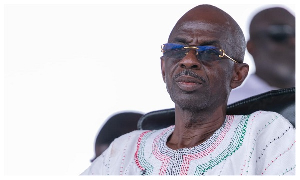One night in February 2006, on their own turf, Egypt secured a fifth Africa Cup of Nations crown — eight full years after their fourth.
The means by which the final was won — penalties — might have been a lottery of sorts, but the process which got the Egyptian challenge over the line wasn’t. Following their triumph at Burkina Faso ’98, Egypt had struggled to make a mark on the continental stage. They were only good enough for the quarter-finals of the Afcon in 2000 and 2002; in 2004, when neighboring Tunisia hosted the competition, Egypt couldn’t even make it beyond the first round.
Those tough times saw a generation reduced to its vestiges and another raised in its place. Two years later, it all came together in some style. Egypt were back, and they trampled enough fellow heavyweights — notably Morocco, Senegal and Ivory Coast — to prove it. So, then, when the talismanic Mohamed Aboutrika converted the final spot-kick which secured glory, it was merely a coda to all the work that had preceded it.
We didn’t know it then, but that success also marked the beginning of the most dominant spell yet in the Afcon’s long history. Egypt, under Hassan Shehata and with the same core of stars, would go on to win the next two African titles, only without the extra work and wahala of picking silverware via nervy shootout sessions. It looked like they’d go on forever — so good were they, that lot — but, just when they had the rest of Africa enchanted and subdued, Egypt fell, almost as suddenly as they had sprung.
Since that last conquest, in 2010, Egypt have been all over the place, sunken to hitherto unimaginable depths. Three successive editions of the Nations Cup were missed as the old gang broke up and the country’s sporting and political landscapes suffered massive upheavals. But even in death, the Pharaohs never saw utter decay, only mummification. A resurrection was inevitable and, at Gabon 2017, it was attempted.
Image result for egypt afcon 2017 finalOn Egypt’s return to the showpiece after their lengthiest absence, the North Africans barged their way — all the way — to the final. It was a three-week performance sprinkled with character, ambition, and then some. This wasn’t vintage Egypt — which is probably why a weaker-than-usual Cameroon could overturn a one-goal deficit incurred early in the Libreville final to steal the prize — but Hector Cuper’s team was still strong enough to stun observers and inspire fear in rivals once more. Some other night on another turf — preferably their own — the story might have been different.
Well, come June 2019 — at the first 24-nation, summer-held Cup of Nations — Egypt would have that chance, a year after appearing at a first Fifa World Cup in nearly three decades. Clearly, they are in the mood to reclaim lost glories, and another youthful bunch, led by a certain fuzzy-haired Mohamed Salah, could execute the next task on the nation’s to-do list.
On Tuesday — when Salah became Egypt’s most decorated with respect to Caf Player of the Year honors — the country was approved as hosts of the Afcon edition whose rights had been snatched from struggling Cameroon late last year. Now, this privilege promises Egypt more than just the usual off-the-pitch goodies the Afcon charabanc brings; for the national team, it’s a big opportunity to re-establish their African supremacy, possibly sparking another period of hegemony.
Of course, the 2019 Afcon is still going to be an open field — the most open yet, in fact. But while it remains anyone’s to win, it’s now very much Egypt’s to lose.
Sports Features of Wednesday, 9 January 2019
Source: thetoughtackle.com
AFCON 2019: Hosts Egypt have a chance to reign again
Entertainment












